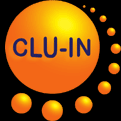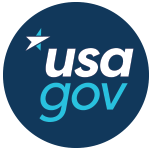Risk e-Learning Webinar Series: Session III - Integrating Omics Data Across Model Organisms and Populations
Sponsored by: NIEHS Superfund Research Program
The NIEHS Superfund Research Program (SRP) is hosting a Risk e-Learning webinar series focused on SRP-funded data science projects that are enhancing the integration, interoperability, and reuse of data. With these supplements, the SRP encourages data sharing among its grantees to accelerate scientific discoveries, stimulate new collaborations, and increase scientific transparency and rigor.
The third and final session will feature SRP-funded researchers collaborating to combine omics (e.g., genomics, proteomics) data within and across model organisms as well as studies in human populations. We will also hear from The Global Alliance for Genomics and Health about their work to incorporate semantic data models for sharing of genomic data to align with environmental health research.
Mark Hahn, Ph.D., Senior Scientist at Woods Hole Oceanographic Institution and researcher with the Boston University SRP Center, and Adam Labadorf, Ph.D., Assistant Professor at Boston University, will describe the integration of diverse genome-scale data sets to obtain a better understanding of how genetic variation influences sensitivity and resistance to hazardous chemicals. The research builds on research on the genetic mechanisms underlying evolved resistance to polychlorinated biphenyls and polycyclic aromatic hydrocarbons in Atlantic killifish (Fundulus heteroclitus) populations living at Superfund sites. They will also describe a new JBrowse instance that integrates multiple genomic data sets, facilitating comparison of genetic variation among killifish populations; they will discuss the potential to expand this platform for cross-species comparisons (e.g., zebrafish, human).
Christian Powell, graduate student at the University of Kentucky, will focus on the Metabolomics Workbench which is a public scientific data repository consisting of experimental data and metadata from metabolomics studies collected from mass spectroscopy and nuclear magnetic resonance analyses. In order to keep up with the ever-evolving state of the Metabolomics Workbench repository, the open source mwtab Python package has been updated to mirror the changes in the mwTab file format and now contains enhanced file validation features, methods for utilizing the Metabolomics Workbench REpresentational State Transfer (REST) interface, and additional features for parsing metabolite data and metadata from repository entries. All of these resources are available through an updated Command Line Interface (CLI) and as a Python application programming interface (API). The mwtab package continues to strive to promote the most FAIR utilization of the Metabolomic Workbench repository, coevolving with and continuing to improve alongside the repository.
Andres Cardenas, Ph.D., M.P.H., Assistant Professor of Environmental Health Sciences at the University of California, Berkeley, and Anne Bozack, Ph.D., M.P.H., postdoctoral fellow in the Cardenas Lab at the University of California, Berkeley, will discuss arsenic epigenetics META: Meta-analysis of Epigenome Data on Arsenic. Epigenome-wide association studies (EWAS) of environmental exposures are commonly restricted to single populations with small sample sizes, and comparison across EWAS has been limited by methodological differences. To address these limitations, they developed a two-step process of (1) harmonized data processing and analysis and (2) meta-analysis to combine results across EWAS. The researchers leveraged data from epidemiological studies of arsenic-exposed populations in Chile and Bangladesh, including DNA methylation measured in different tissue types (i.e., PBMCs and buccal cells) and using different platforms (i.e., the 850K and 450K microarrays), to identify arsenic-related DNA methylation signatures.
Accessibility, Recording, and Content Disclaimer
Rehabilitation Act Notice for Reasonable Accommodation
It is EPA's policy to make reasonable accommodation to persons with disabilities wishing to participate in the agency's programs and activities, pursuant to the Rehabilitation Act of 1973, 29 U.S.C. 791. Any request for accommodation should be made to at or , preferably one week or more in advance of the webinar, so that EPA will have sufficient time to process the request. EPA would welcome specific recommendations from requestors specifying the nature or type of accommodation needed. Please note that CLU-IN provides both alternate phone call-in options and closed captioning for all webinars, and requests for these specific accommodations are not necessary.
Webinar Recording
By participating in this CLU-IN webinar, you automatically agree to authorize recording of audio and visual content presented during this live event and consent to subsequent use of this recording in the public domain by the U.S. Environmental Protection Agency. This recording may include questions, comments and poll responses provided by you during the live event in addition to your name, voice, image or likeness. This recording will be made available after the conclusion of the live event as part of the CLU-IN webinar archives, and will remain available indefinitely. If you do not wish to consent to the recording, please do not join the live event, and contact Jean Balent at 202-566-0832 or balent.jean@epa.gov to discuss your concerns.
Content Disclaimer
This webinar is intended solely to provide information to the public. The views and opinions expressed as part of this webinar do not necessarily state or reflect those of the U.S. Environmental Protection Agency. It is not intended, nor can it be relied upon, to create any rights enforceable by any party in litigation with the United States, or to endorse the use of products or services provided by specific vendors. With respect to this webinar, neither the United States Government nor any of their employees, makes any warranty, express or implied, including the warranties of merchantability and fitness for a particular purpose, or assumes any legal liability or responsibility for the accuracy, completeness, or usefulness of any information, apparatus, product, or process disclosed, or represents that its use would not infringe privately owned rights.
Presenters:
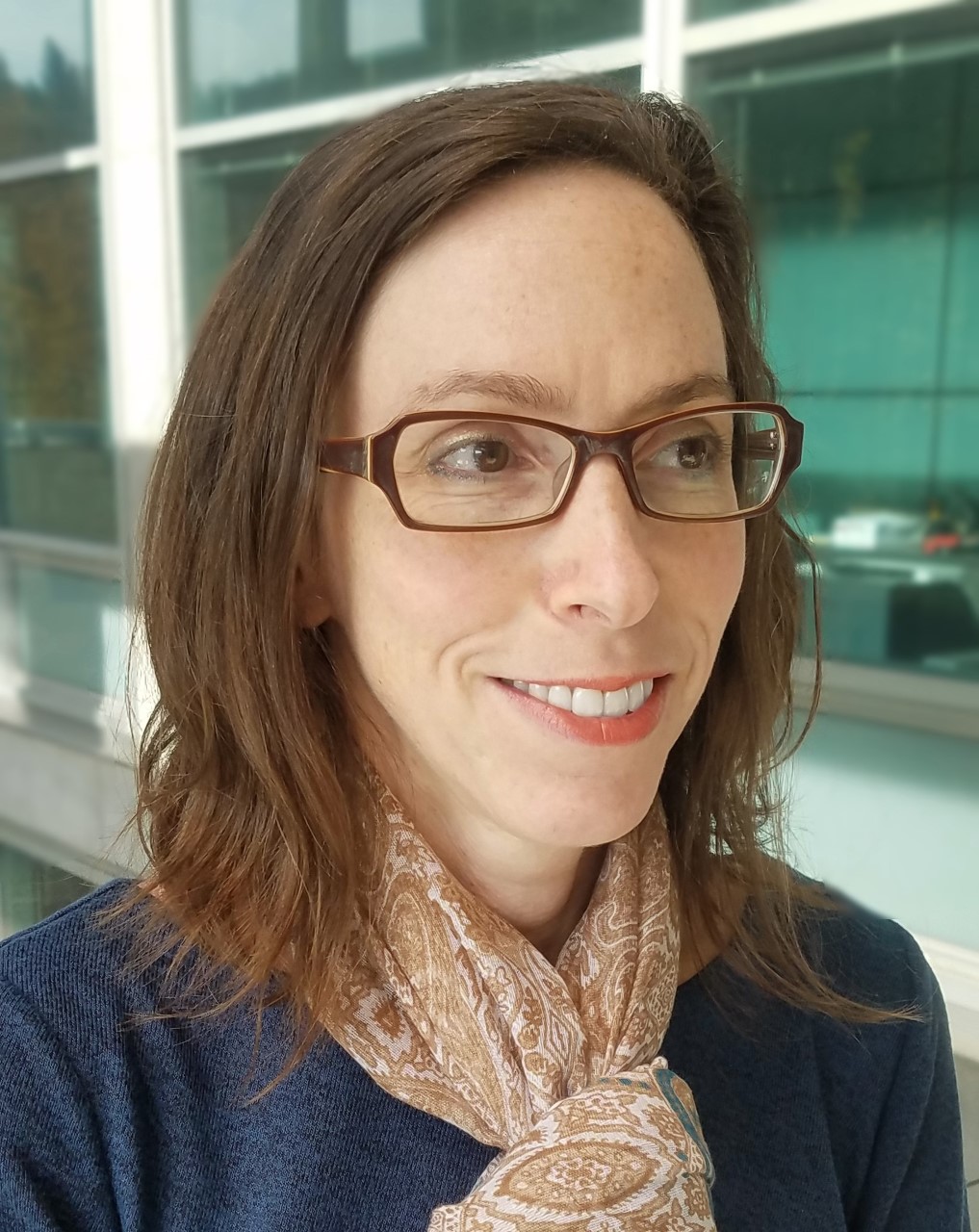 Melissa Haendel, Ph.D., University of Colorado, Anschutz Medical Campus (melissa@tislab.org)
Melissa Haendel, Ph.D., University of Colorado, Anschutz Medical Campus (melissa@tislab.org)
Melissa Haendel, Ph.D., is the Chief Research Informatics Officer at University of Colorado Anschutz Medical School, the director of the Center for Data to Health (CD2H), and an elected Fellow of the American Medical Informatics Association. Her background is in translational science, with a focus over the past decade on the development of ontologies, semantic engineering technologies, and open science infrastructure programs. Haendel's vision is to weave together healthcare systems, basic science research, and patient generated data through development of data integration technologies and innovative data capture strategies. Haendel co-leads the Monarch Initiative, an international consortium dedicated to utilizing model organism genotype-phenotype data, deep phenotyping, and graph-based integration techniques to improve rare disease diagnosis. She also co-leads the NCATS Data Translator, which aims to integrate hundreds of data resources for mechanism and drug discovery. The CD2H is tasked with coordinating informatics across 60 Clinical and Translational Science Award Institutes and is focused on implementation of cloud and information architecture, clinical data model interoperability, and precision-medicine focused terminology development. Haendel is the co-lead for the GA4GH Clinical and Phenotypic workstream, where she supports cross-disciplinary international teams, development of standards for clinical genetics in rare disease and cancer, and improving access to data across the world.
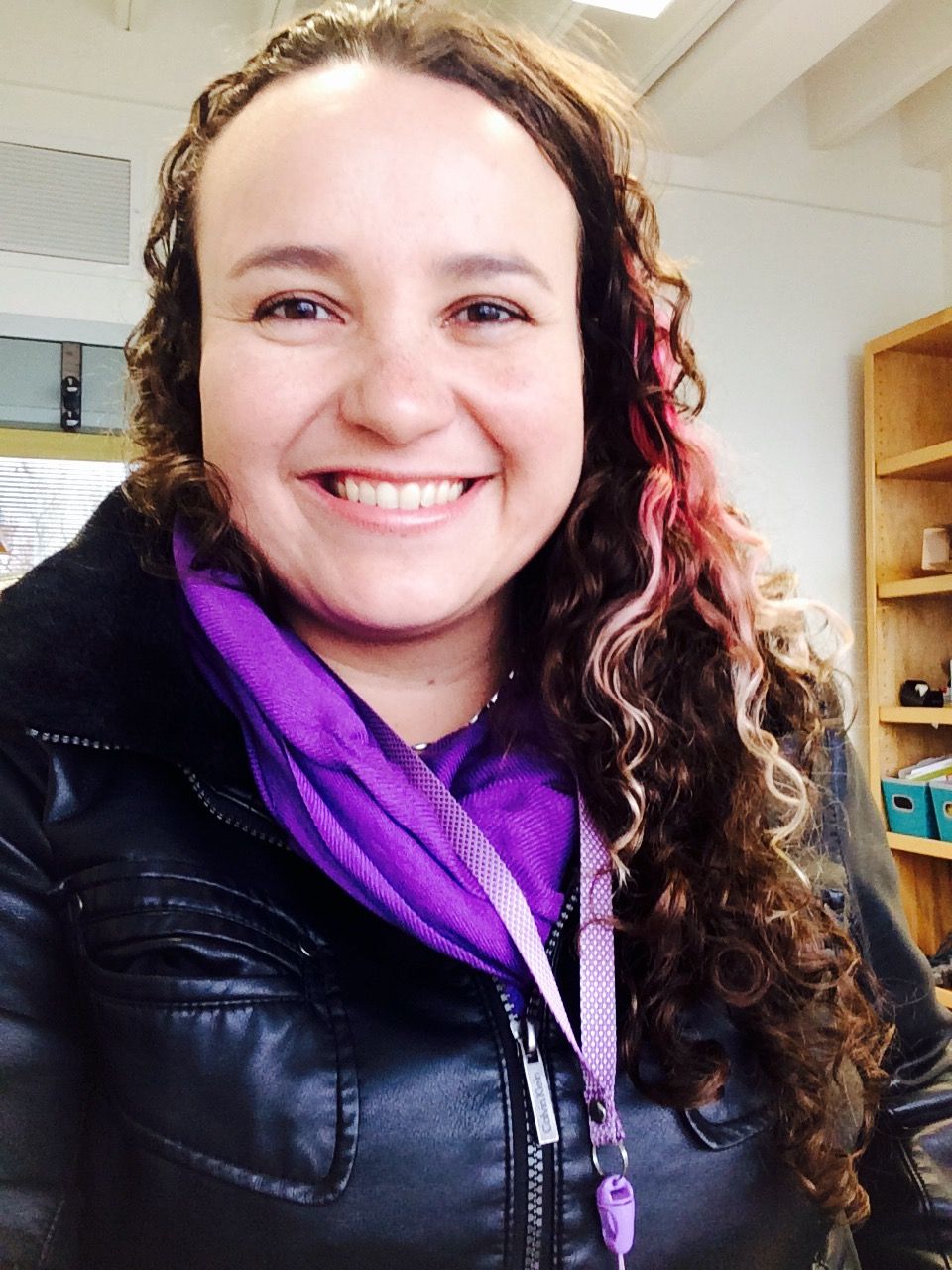 Monica Munoz-Torres, Ph.D., University of Colorado, Anschutz Medical Campus (moni@tislab.org)
Monica Munoz-Torres, Ph.D., University of Colorado, Anschutz Medical Campus (moni@tislab.org)
Monica Munoz-Torres, Ph.D., is the Program Manager at the Translational and Integrative Sciences Lab (TISLab). Curating genomes sparked her current scientific path, and she now manages software development projects aimed at facilitating how we draw insight from genomic and phenomic data across species. Munoz-Torres is a highly accomplished genomics scientist with extensive experience at the computer and at the bench. She is a very experienced project manager, specializing in bioinformatics and genome curation efforts, and has been very successful in building and growing communities around genome curation. Munoz-Torres also serves as Director of Operations for the Center for Cancer Data Harmonization, a Program of the US NIH's National Cancer Institute, and as Program Director for the newly awarded "Phenomics First Resource", an NHGRI Center of Excellence in Genomic Science.
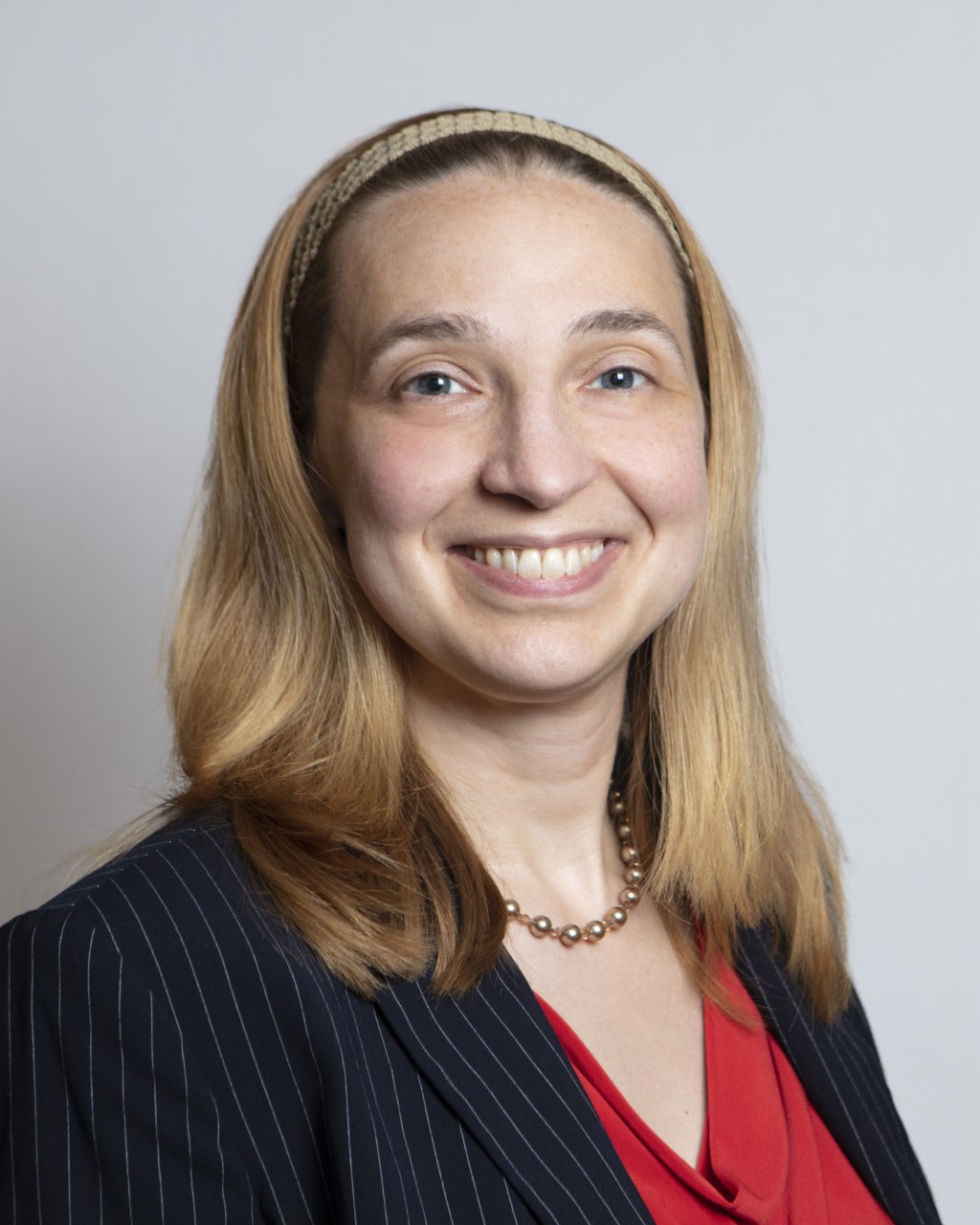 Anne Thessen, Ph.D., University of Colorado, Anschutz Medical Campus (annethessen@gmail.com or 443-225-9185)
Anne Thessen, Ph.D., University of Colorado, Anschutz Medical Campus (annethessen@gmail.com or 443-225-9185)
Anne Thessen, Ph.D., got her start in science at the Louisiana Universities Marine Consortium (LUMCON) in 1999 as an undergrad working on harmful algae blooms. She went on to get her Ph.D. in biological oceanography from the University of Maryland at Horn Point Lab in 2007, starting in 2002, when her son was one year old. After finishing her Ph.D., she did one postdoc with Lou Codispoti, Ph.D., to create a database for Arctic nutrient data. Then she did a second postdoc with the Census of Marine Life and the Encyclopedia of Life at the Marine Biological Laboratory in Woods Hole, Massachusetts. After a large project fell through, she started her own data science consulting company and did that for five years. In 2018, she took a position at Oregon State University in the Translational and Integrative Sciences Lab where she works remotely from Boston on data science, semantic technology, and machine learning.
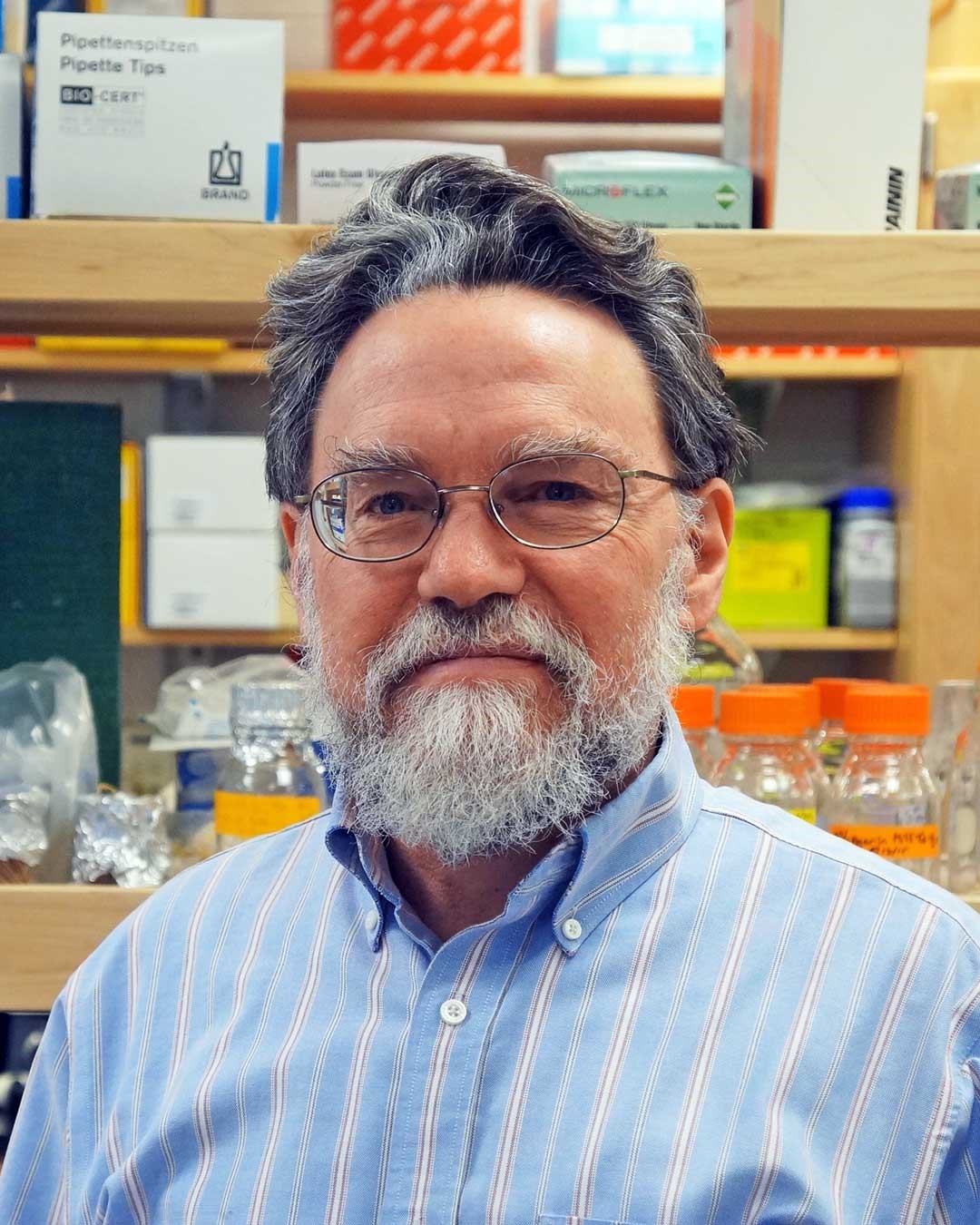 Mark Hahn, Ph.D., Boston University (mhahn@whoi.edu or 508-289-3242)
Mark Hahn, Ph.D., Boston University (mhahn@whoi.edu or 508-289-3242)
Mark Hahn is a Senior Scientist in the Biology Department at the Woods Hole Oceanographic Institution (WHOI) in Woods Hole, Massachusetts. He also is a Project Leader in the Boston University Superfund Research Program and the Woods Hole Center for Oceans and Human Health. Hahn received his PhD in Environmental Toxicology (1988) from the University of Rochester School of Medicine and Dentistry. He conducted postdoctoral research at WHOI before being appointed to the scientific staff in 1992. Dr. Hahn studies the molecular mechanisms and evolution of transcription factors (e.g. AHR, NRF2) involved in the response to chemicals, mechanisms of adaptation and evolved resistance to chemicals in fish following long-term chemical exposure, mechanisms of developmental toxicity of harmful algal bloom toxins, and the impact of microplastics in the environment. Dr. Hahn is author or co-author of more than 175 peer-reviewed papers.
Adam Labadorf, Ph.D., Boston University (labadorf@bu.edu or 617-638-5350)
Adam Labadorf received his PhD in Bioinformatics from Boston University (BU) in 2016 and holds roles as Assistant Professor in the Neurology Department at BU School of Medicine, Director of Bioinformatics for the VA PTSD Brain Bank, and Director of the BU Bioinformatics Master's Program. He has extensive experience in the application of bioinformatics and genomics and transcriptomics tools to diverse areas of biology, including neurodegeneration, cancer, and basic cell biology. His primary research interest is in understanding neurodegeneration using post-mortem human brain tissue across multiple disease contexts, including Huntington's, Parkinson's, Chronic Traumatic Encephalopathy, Alzheimer's, ALS, and PTSD. He also brings bioinformatics expertise to a wide range of collaborations, including Caribbean coral holotranscriptomics, telomere maintenance mechanisms, and killifish genetics. Outside research, he is passionate about building efforts to address institutional racism in health and science and increase diversity and inclusivity in higher education.
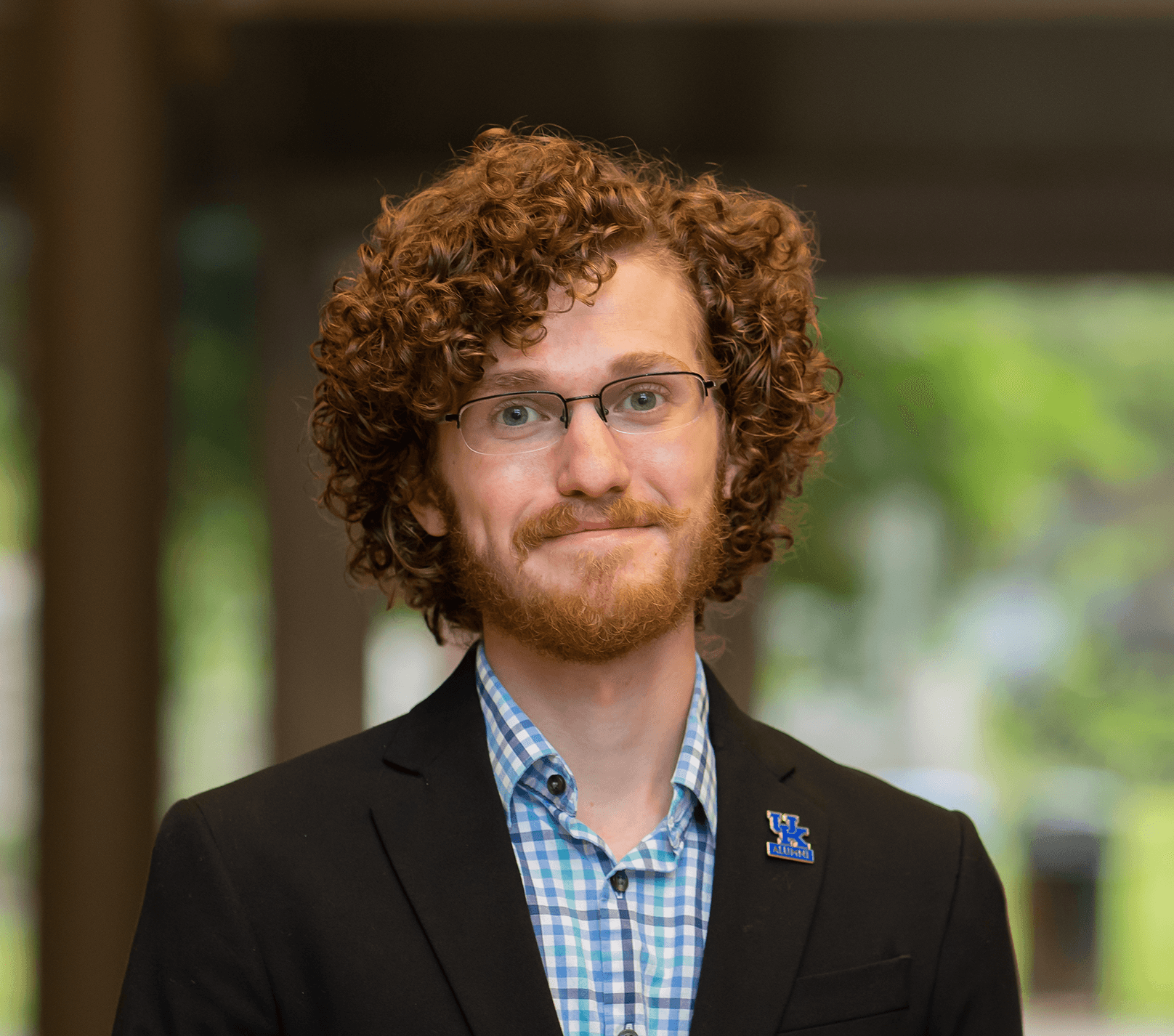 Christian Powell, University of Kentucky SRP Center (christian.powell@uky.edu or 859-218-2965)
Christian Powell, University of Kentucky SRP Center (christian.powell@uky.edu or 859-218-2965)
Christian D. Powell is a graduate student at the University of Kentucky studying in the multidisciplinary Data Science Master's program. He has worked in Dr. Hunter N.B. Moseley's Bioinformatics and Systems Biochemistry laboratory since 2015. Powell began work with the University of Kentucky SRP Center as a Data Coordinator for the Data Management and Analysis Core (DMAC) in November 2019 and officially became a graduate trainee at the beginning of this year (2021).
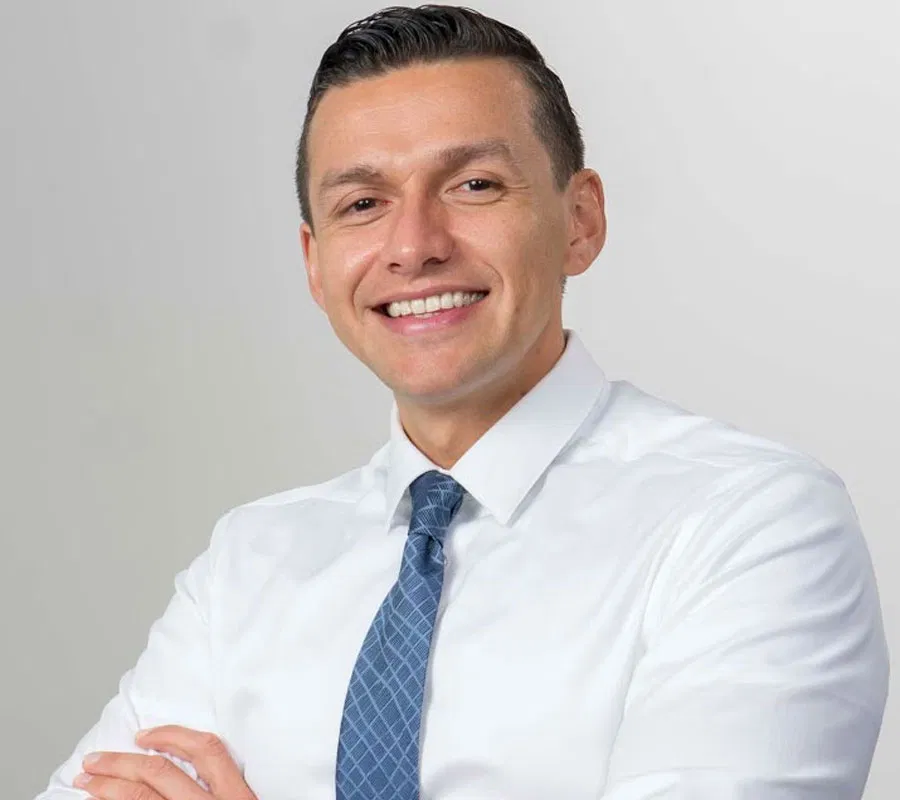 Andres Cardenas, Ph.D., M.P.H., University of California, Berkeley SRP Center (andres.cardenas@berkeley.edu or 510-643-0965)
Andres Cardenas, Ph.D., M.P.H., University of California, Berkeley SRP Center (andres.cardenas@berkeley.edu or 510-643-0965)
Andres Cardenas is an Assistant Professor of Environmental Health Sciences at the University of California, Berkeley who applies epidemiological and molecular approaches to evaluate the contribution of environmental exposures in the development of disease.
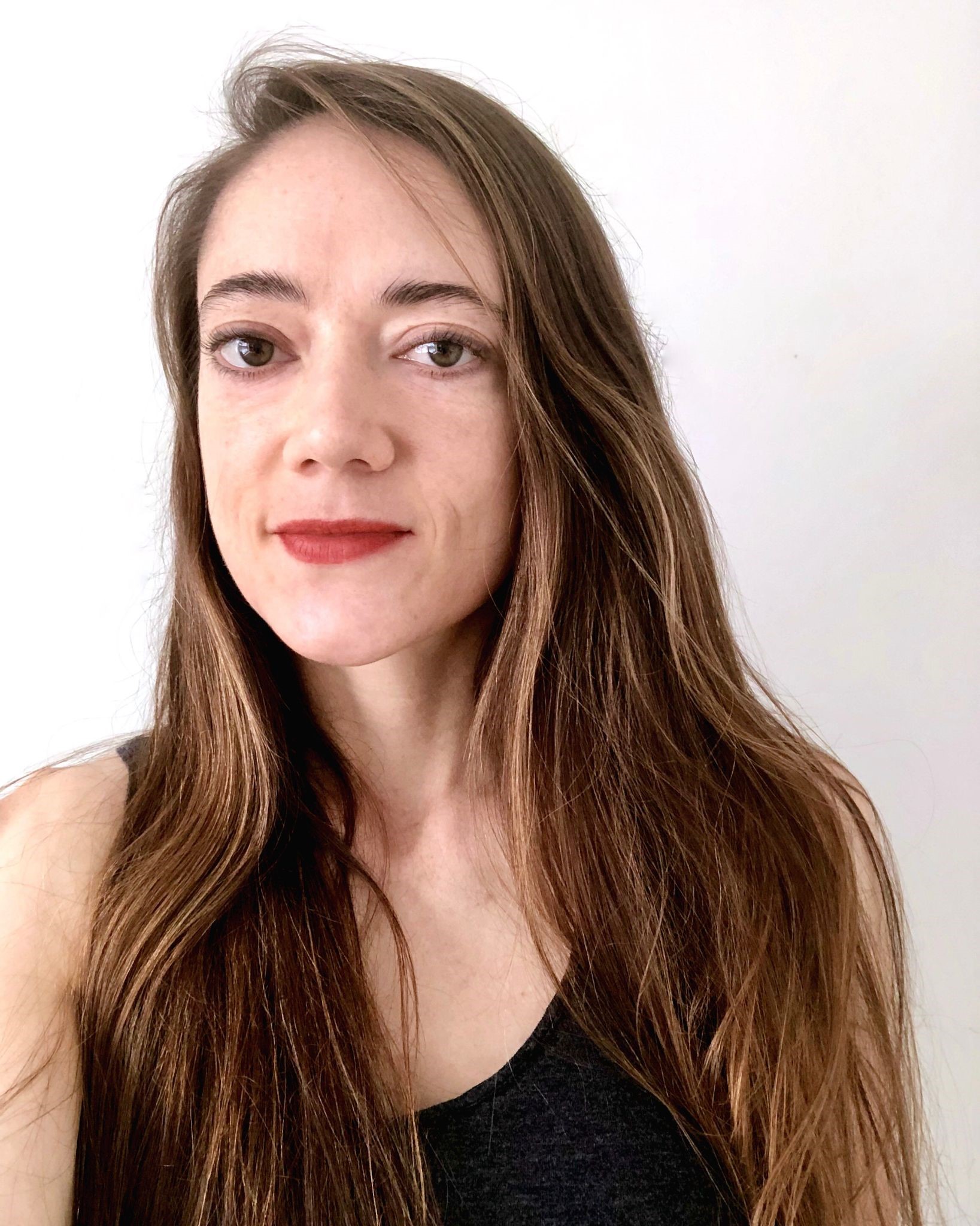 Anne Bozack, Ph.D., M.P.H., University of California, Berkeley SRP Center (anne.bozack@berkeley.edu)
Anne Bozack, Ph.D., M.P.H., University of California, Berkeley SRP Center (anne.bozack@berkeley.edu)
Anne Bozack is a postdoctoral fellow in the Cardenas Lab. Her research focuses on the impact of environmental exposures on the molecular level and effects of nutrition. Her current projects investigate the associations between chronic exposure to metals and DNA methylation. Anne holds a Ph.D. in Environmental Health Sciences and M.P.H. in Sociomedical Sciences from Columbia University.
Moderators:
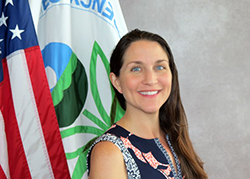 Jean Balent, U.S. EPA Office of Superfund and Emergency Management (OSEM) (balent.jean@epa.gov or 202-566-0832)
Jean Balent, U.S. EPA Office of Superfund and Emergency Management (OSEM) (balent.jean@epa.gov or 202-566-0832)
Ms Balent is on the staff of the EPA's Technology Innovation and Field Services Division where she has worked to collect and disseminate hazardous waste remediation and characterization information since 2003. Ms Balent manages the Clean Up Information Network website and actively supports online communication and collaboration resources available to EPA. She formerly worked with the US Army Corps of Engineers Environmental Engineering Division in the Buffalo District. Ms Balent was also a member of the SUNY-Buffalo Groundwater Research Group where she constructed and tested large scale models of groundwater flow. Ms Balent has also conducted research relating to the Great Lakes, environmental remediation, and brownfields re-development. She holds a Bachelor's degree in environmental engineering from SUNY-Buffalo and a Master's degree in Information Technology from AIU.
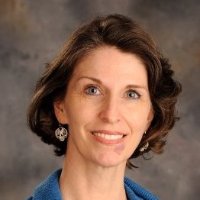 Stephanie Holmgren, NIEHS (holmgre1@niehs.nih.gov or 984-287-3139)
Stephanie Holmgren, NIEHS (holmgre1@niehs.nih.gov or 984-287-3139)
Stephanie Holmgren is a Program Manager in the Office of Data Science at NIEHS. She is currently managing a new NIEHS initiative to catalyze knowledge discovery through a community-driven approach to develop and implement a harmonized environmental health science language. She is also involved in NIEHS as well as NIH efforts related to FAIR data management and sharing approaches.
Webinar Slides and References:
-
 Slide Presentation For Monica Munoz-Torres, Ph.D., Anne Thessen, Ph.D., and Melissa Haendel,Ph.D. (12.0MB/PDF)
Slide Presentation For Monica Munoz-Torres, Ph.D., Anne Thessen, Ph.D., and Melissa Haendel,Ph.D. (12.0MB/PDF)
-
 Slide Presentation for Mark Hahn, Ph.D., and Adam Labadorf, Ph.D. (3.02MB/PDF)
Slide Presentation for Mark Hahn, Ph.D., and Adam Labadorf, Ph.D. (3.02MB/PDF)
-
 Slide Presentation for Christian Powell (642KB/PDF)
Slide Presentation for Christian Powell (642KB/PDF)
-
 Slide Presentation for Anne Bozack, Ph.D., M.P.H., and Andres Cardenas, Ph.D., M.P.H. (1.97MB/PDF)
Slide Presentation for Anne Bozack, Ph.D., M.P.H., and Andres Cardenas, Ph.D., M.P.H. (1.97MB/PDF)
Webinar Slides and References:
-
 Slide Presentation For Monica Munoz-Torres, Ph.D., Anne Thessen, Ph.D., and Melissa Haendel,Ph.D. (12.0MB/PDF)
Slide Presentation For Monica Munoz-Torres, Ph.D., Anne Thessen, Ph.D., and Melissa Haendel,Ph.D. (12.0MB/PDF)
-
 Slide Presentation for Mark Hahn, Ph.D., and Adam Labadorf, Ph.D. (3.02MB/PDF)
Slide Presentation for Mark Hahn, Ph.D., and Adam Labadorf, Ph.D. (3.02MB/PDF)
-
 Slide Presentation for Christian Powell (642KB/PDF)
Slide Presentation for Christian Powell (642KB/PDF)
-
 Slide Presentation for Anne Bozack, Ph.D., M.P.H., and Andres Cardenas, Ph.D., M.P.H. (1.97MB/PDF)
Slide Presentation for Anne Bozack, Ph.D., M.P.H., and Andres Cardenas, Ph.D., M.P.H. (1.97MB/PDF)
Additional Resources:
- The FAIR Guiding Principles for scientific data management and stewardship
- Sharing SRP data to reduce environmentally associated disease and promote transdisciplinary research
- Environmental Health Language Collaborative (EHLC)
- EHLC Virtual Workshop - Catalyzing Knowledge-Driven Discovery in Environmental Health Sciences Through a Harmonized Language - September 9-10, 2021
- EHLC Mailing List
Resources for Munoz-Torres/Thessen/Haendel Presentation
- The Monarch Initiative
- The Human Phenotype Ontology
- The Phenopacket Standard
- Global Alliance for Genomics and Health (GA4GH)
- Global Alliance for Genomics and Health (GA4GH) - Plenary Meeting - September 28 & 29, 2021
- The Monarch Initiative in 2019: an integrative data and analytic platform connecting phenotypes to genotypes across species
https://academic.oup.com/nar/article/48/D1/D704/5614574 - The Human Phenotype Ontology in 2021
https://academic.oup.com/nar/article/48/D1/D704/5614574 - Community Approaches for Integrating Environmental Exposures into Human Models of Disease
https://ehp.niehs.nih.gov/doi/10.1289/EHP7215
Resources for Hahn/Labadorf Presentation
- SuperFunBase
- Boston University Superfund Program
- Duke University Superfund Program
- Nacci DE, Champlin D, Jayaraman S (2010) Adaptation of the estuarine fish Fundulus heteroclitus (Atlantic killifish) to polychlorinated biphenyls (PCBs). Estuaries and Coasts 33: 853–864.
https://link.springer.com/article/10.1007/s12237-009-9257-6 - Di Giulio RT, Clark BW (2015) The Elizabeth River Story: A Case Study in Evolutionary Toxicology. J Toxicol Environ Health B Crit Rev 18: 259-298.
https://pubmed.ncbi.nlm.nih.gov/26505693/ - Reid NM, Proestou DA, Clark BW, Warren WC, Colbourne JK, Shaw JR, Karchner SI, Hahn ME, Nacci D, Oleksiak MF, Crawford DL, Whitehead, A. (2016) The genomic landscape of rapid repeated evolutionary adaptation to toxic pollution in wild fish. Science 354: 1305-1308.
https://pubmed.ncbi.nlm.nih.gov/27940876/ - Whitehead A, Clark BW, Reid NM, Hahn ME, Nacci D (2017) When evolution is the solution to pollution: Key principles, and lessons from rapid repeated adaptation of killifish (Fundulus heteroclitus) populations. Evolutionary Applications 10: 762–783.
https://pubmed.ncbi.nlm.nih.gov/29151869/ - Osterberg JS, Cammen KM, Schultz TF, Clark BW, Di Giulio RT (2018) Genome-wide scan reveals signatures of selection related to pollution adaptation in non-model estuarine Atlantic killifish (Fundulus heteroclitus). Aquat Toxicol 200: 73-82.
https://pubmed.ncbi.nlm.nih.gov/29727773/ - The mwtab Python Library for RESTful Access and Enhanced Quality Control, Deposition, and Curation of the Metabolomics Workbench Data Repository
- The Landscape of Extreme Genomic Variation in the Highly Adaptable Atlantic Killifish
- Common mechanism underlies repeated evolution of extreme pollution tolerance
- Comparative transcriptomics implicates mechanisms of evolved pollution tolerance in a killifish population
- Transcriptomic assessment of resistance to effects of an aryl hydrocarbon receptor (AHR) agonist in embryos of Atlantic killifish (Fundulus heteroclitus) from a marine Superfund site
- PAH-pollution effects on sensitive and resistant embryos: Integrating structure and function with gene expression
Resources for Bozack/Cardenas Presentation
Thank you for participating in our webinar. We would like to receive any feedback you might have that would make this service more valuable.
Help & FAQs
Zoom Resources
This seminar will be delivered through Zoom. Participants are encouraged to update to the latest version of the Zoom application for the best experience. If you are unable to install the Zoom application, most functions will be available if you join just using a modern web browser such as Chrome, Edge or Firefox. We strongly encourage you to run the Zoom Meeting Test prior to attending this seminar. Technical support on the day of the seminar will be very limited and subject to significant delays.
Rehabilitation Act Notice for Reasonable Accommodation
It is EPA's policy to make reasonable accommodation to persons with disabilities wishing to participate in the agency's programs and activities, pursuant to the Rehabilitation Act of 1973, 29 U.S.C. 791. Any request for accommodation should be made to at or , preferably one week or more in advance of the seminar, so that EPA will have sufficient time to process the request. EPA would welcome specific recommendations from requestors specifying the nature or type of accommodation needed, such as closed captioning.
with any additional questions

